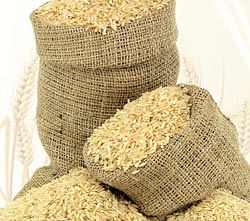
Minister of State (Independent Charge) for Consumer Affairs, Food and Public Distribution, K V Thomas, introduced the National Food Security Bill, 2011 in the Lok Sabha, with Congress president Sonia Gandhi leading the party MPs in thumping desks. The Bill is believed to be close to Gandhi’s heart and the Congress hopes to rely on it to blunt the attacks by Team Anna and a belligerent Opposition led by the BJP. Thomas said the Bill was expected to be passed during the Budget session of Parliament. Allaying concerns that the proposed legislation might lead to an exponential rise in the food subsidy bill, the minister said that it would result in an additional financial burden of about Rs 24,000 crore annually. “There are many existing schemes, related to children and women that would now be covered by the proposed National Food Security Act,” said the minister.
The Congress, besieged by a series of scams and crises, hopes that the proposed legislation would help it in Uttar Pradesh, which will go to polls around February-March next year. The party is also keen to bank on the legislation to sail through the polls in four other states as well as for an image makeover ahead of the 2014 Lok Sabha polls.
Paradigm shift
The Bill seeks to bring in a paradigm shift in the government’s efforts to ensure food security – from the current welfare approach to a right-based approach. It provides for food and nutritional security for the entire life cycle of the individuals covered by it. While three-fourths of the rural population will be covered by the food security net that the proposed legislation seeks to lay down, 46 per cent of them will be designated as priority households. Half of the urban population will be covered by the proposed legislation, while 28 per cent of them will be tagged as priority households. The Bill seeks to provide the priority households in both rural and urban areas with seven kg of foodgrains per person per month and the general households with not less than three kg of foodgrains per person per month. The prices of the foodgrains for priority households will not exceed Rs Three per kg for rice, Rs Two per kg for wheat and Re One per kg for coarse grains. For the general households, the prices of wheat and coarse grains would not be more than 50 per cent of the minimum support price and that of rice not more than half of the derived minimum support price.
The Bill entitles every pregnant woman and lactating mother to free meal during pregnancy and six months after child-birth, through the local anganwadi among other benefits.